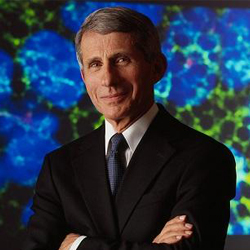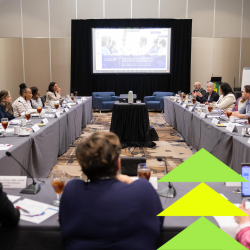The National Institute of Allergy and Infectious Diseases (NIAID), part of the National Institutes of Health (NIH), has established a new network that aims to enroll thousands of volunteers in large-scale clinical trials testing a variety of investigational vaccines and monoclonal antibodies intended to protect people from COVID-19.
The COVID-19 Prevention Trials Network (COVPN) was established by merging four existing NIAID-funded clinical trials networks: the HIV Vaccine Trials Network (HVTN), based in Seattle, Wash.; the HIV Prevention Trials Network (HPTN), based in Durham, N.C.; the Infectious Diseases Clinical Research Consortium (IDCRC), based in Atlanta, Ga.; and the AIDS Clinical Trials Group, based in Los Angeles, Calif. Those individual networks will continue to perform clinical trials for HIV vaccine and prevention and other infectious diseases in addition to their new COVID-19 roles.
“Having a safe and effective medical countermeasure to prevent COVID-19 would enable us to not only save lives but also help end the global pandemic,” said NIAID Director Anthony S. Fauci, MD. “Centralizing our clinical research efforts into a single trials network will expand the resources and expertise needed to efficiently identify safe and effective vaccines and other prevention strategies against COVID-19.”
The COVPN is a functional unit of “Operation Warp Speed,” a partnership led by the U.S. Department of Health and Human Services to invest in and coordinate the development, manufacturing, and distribution of COVID-19 diagnostics, therapeutics, and vaccines. The network will use a harmonized vaccine protocol developed by the Accelerating COVID-19 Therapeutic Interventions and Vaccines (ACTIV) public-private partnership. This will enable analyses of correlates of protection across multiple vaccine trials. The network is expected to operate more than 100 clinical trial sites across the United States and internationally.
The network has developed an extensive community engagement framework to reach out to potential research volunteers and explain the specific details involved in participating in a vaccine or monoclonal antibody clinical study.
“Each of the Phase III clinical trials that the COVPN will conduct will require thousands of volunteers,” said NIH Director Francis Collins, MD. “Community engagement, particularly with the communities most vulnerable to COVID-19’s severe outcomes, will be critical to the success of this research endeavor.”
People can learn more about the different stages of vaccine research and the new network’s COVID-19 vaccine and monoclonal antibody studies by visiting the COVPN’s website (https://www.coronaviruspreventionnetwork.org). The COVPN website features a customized data collection platform to securely identify potential trial participants. Interested individuals can sign up for a rolling clinical trial participant registry on the website, which features security-enhanced protections. Clinical study staff will use the registry to contact and screen potential study volunteers.
The first Phase III clinical trial that the COVPN expects to conduct will involve testing the investigational mRNA-1273 vaccine, developed by NIAID scientists and their collaborators at the biotechnology company Moderna, Inc., based in Cambridge, Mass. That study is expected to begin this summer.
Edited by Michael Causey



